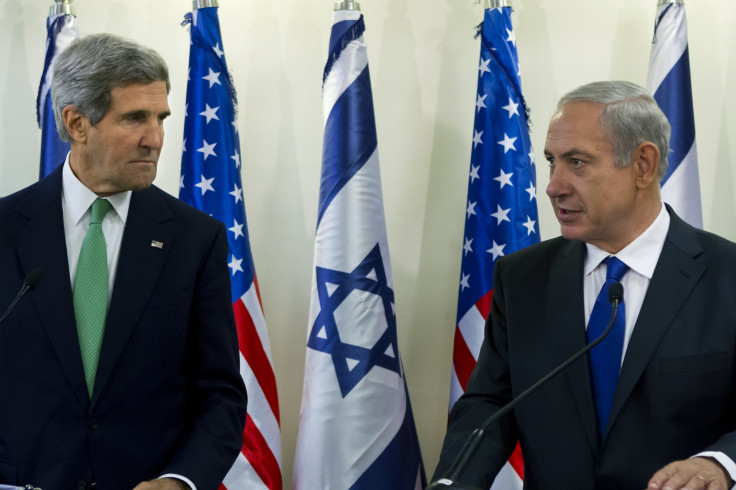Israel-Palestine Conflict: No Breakthrough Expected In Kerry-Netanyahu Rome Meeting

In what is being described as a last ditch effort to salvage the fraught Israel-Palestine peace process, the U.S. Secretary of State John Kerry will meet Israeli Prime Minister Benjamin Netanyahu in Rome Sunday. However, as is evident from remarks made by U.S. officials ahead of the meeting, hopes of a breakthrough are slim at best.
“The Secretary plans to discuss a range of regional issues with the prime minister at their meeting in Rome, which includes the fight against Daesh [Arabic acronym for the Islamic State group], recent developments in Syria. He will not be trying to restart peace talks between the Israelis and Palestinians or offering any new initiatives,” U.S. State Department spokesman John Kirby said during a press briefing Friday. “Obviously, as a part of this broader discussion that the Secretary will be having with the prime minister, they’ll talk about where things stand with respect to movement to or away from a two-state solution. But ... he’s not going to restart talks.”
Despite several rounds of international talks since the 1990s, Israel and Palestine have remained divided over several key issues, including the status of East Jerusalem — which Palestine claims as the capital of its future state — the Israeli blockade of Gaza and the expansion of Jewish settlements in the West Bank — something that even the U.S., Israel’s staunchest ally, has frequently aired concerns about.
The occupied territories in the West Bank have been under Israeli control since the Six-Day War in 1967, in direct contravention of the United Nations resolutions 242 and 446, which call for the withdrawal of the Israeli military from the region and an end to expansion of Jewish settlements.
The meeting comes just days after France launched a multi-nation diplomatic initiative to revive the peace process through a meeting that many felt was doomed from the start. Although Kerry attended the conference in Paris earlier in June — where he urged both sides in the conflict to take “affirmative steps” to preserve peace in the region — neither Israel nor Palestine were represented at the meeting.
At the time, the Israeli government rejected the overture, stating that peace in the region cannot be “coerced.”
Sunday’s meeting in Rome is also likely to touch upon the imminent release of a report by the Middle East Quartet — a body comprising the U.S., the United Nations, the European Union and Russia. The report will “largely reflect the Quartet statement from September,” Kirby said, referring to an earlier statement in which the group said ongoing settlement activity in the West Bank and continuing demolition of Palestinian homes in the occupied territories were “dangerously imperilling” the viability of a two-state solution.
“It will include recommendations that can help inform international discussions on the best way to advance a two-state solution,” Kirby added.
© Copyright IBTimes 2024. All rights reserved.












